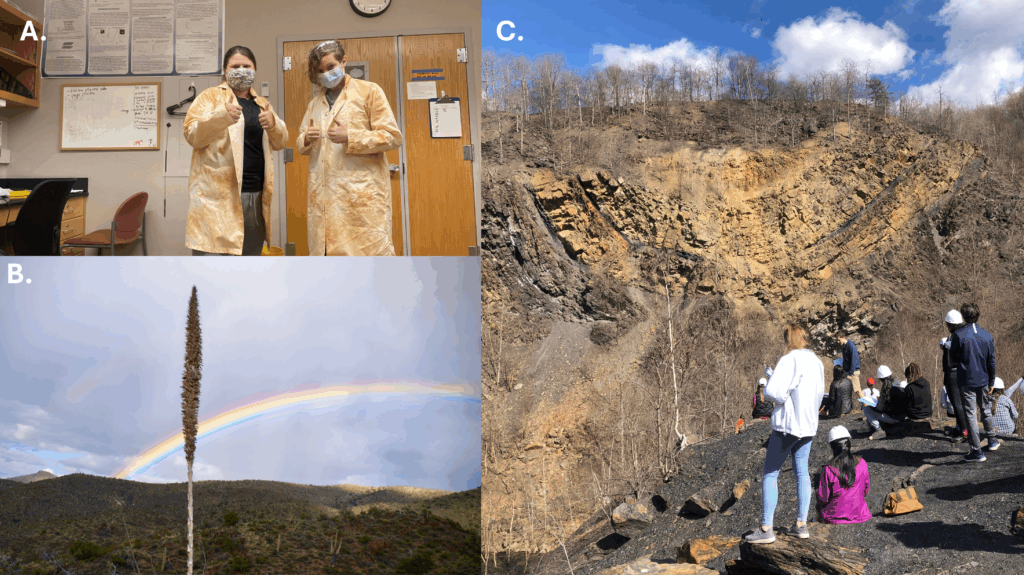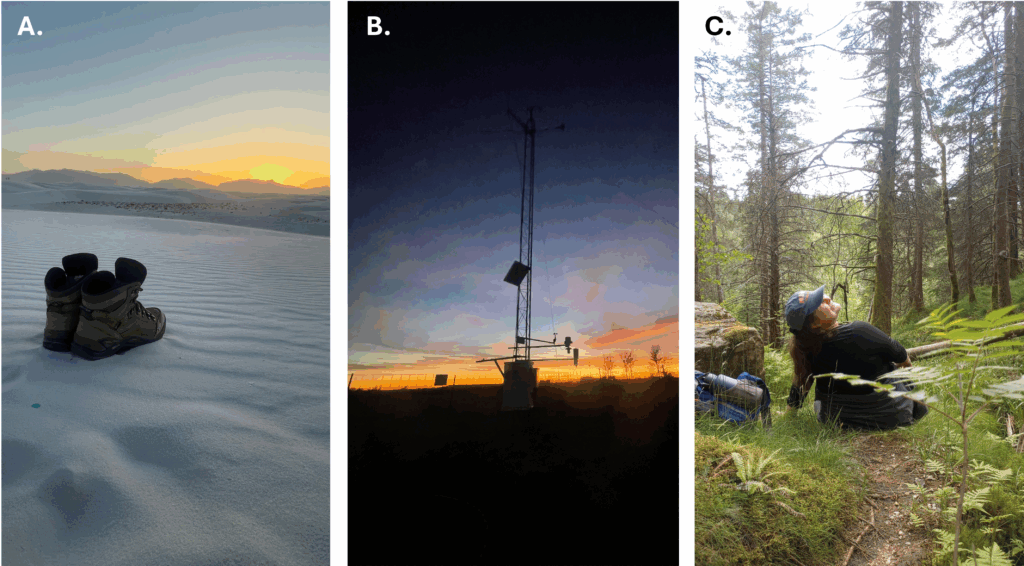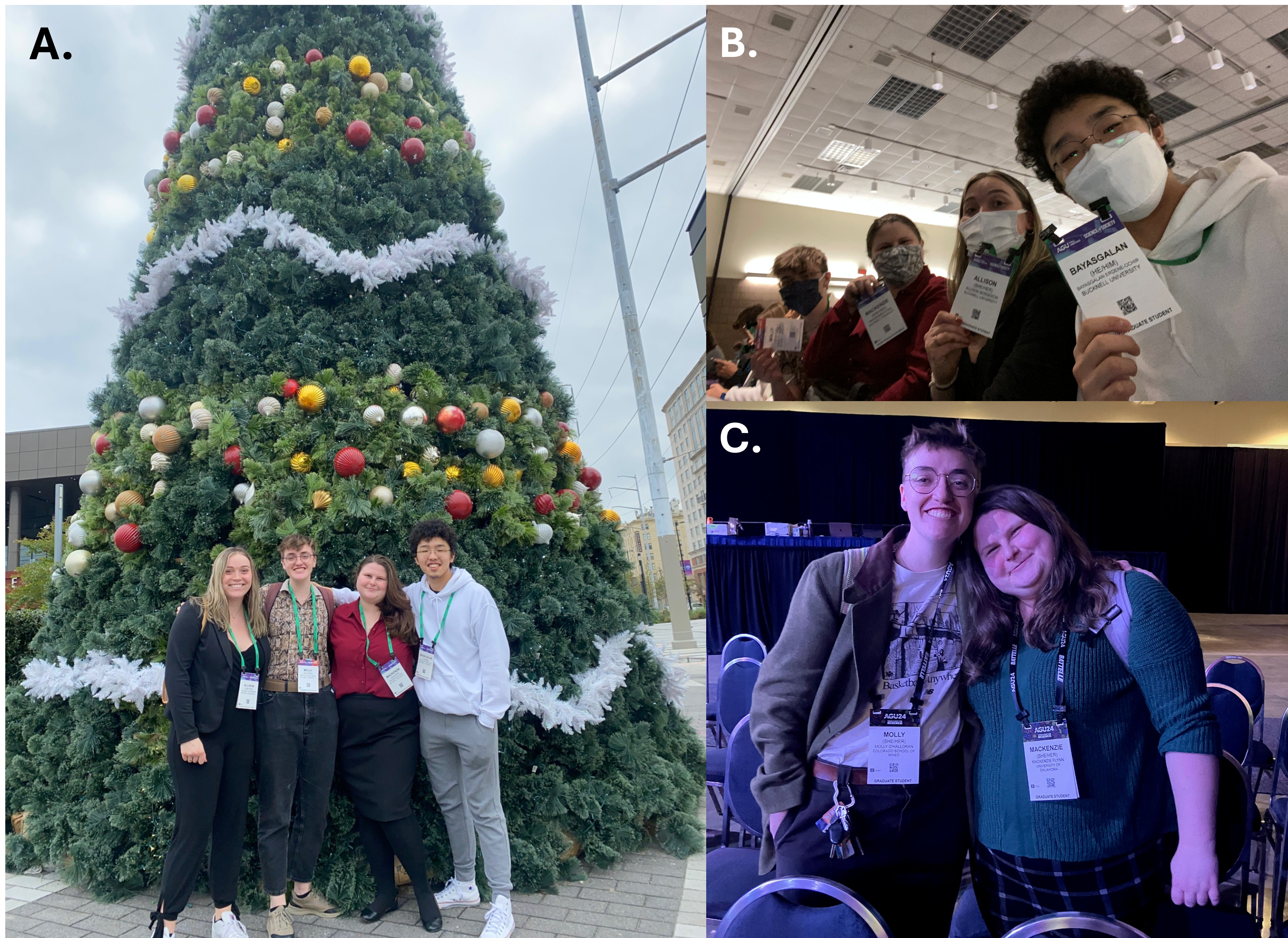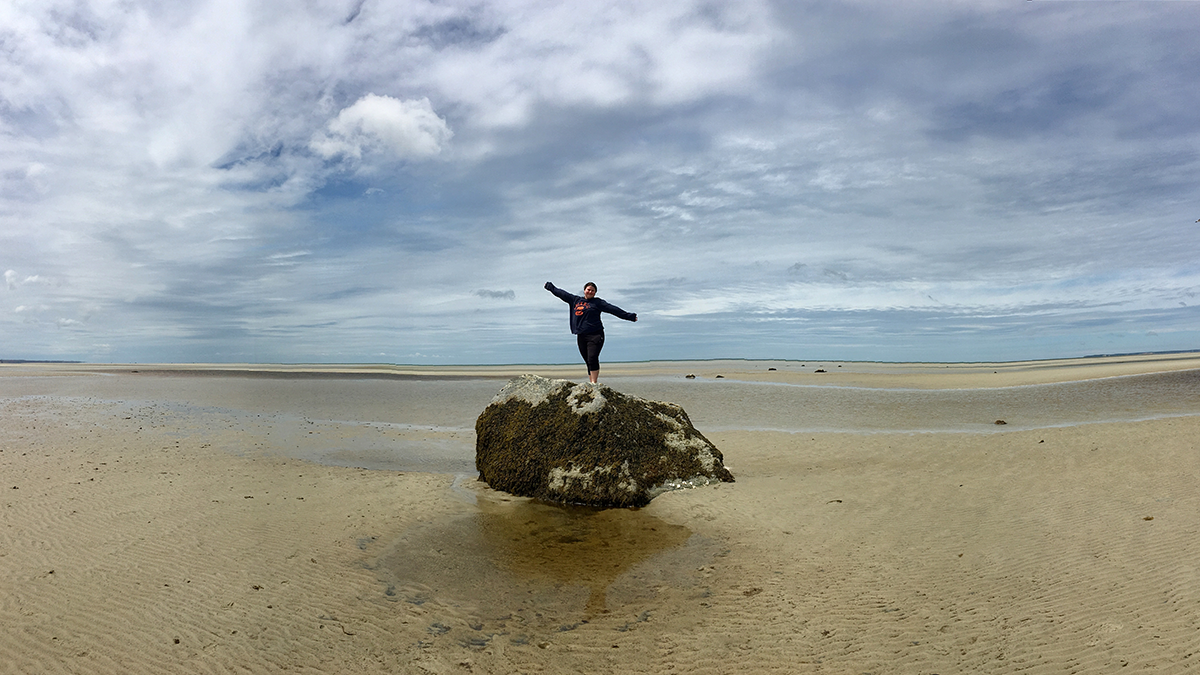Editors’ Vox is a blog from AGU’s Publications Department.
AGU Publications is committed to supporting early career professionals and provides many opportunities for developing scientists. One of these opportunities is our annual summer publications internship, where someone early in their career is given an inside look at many different aspects of publishing at a scientific society.
Our summer 2025 publications intern, Mackenzie Flynn, joined our team with several unique opportunities and perspectives in between her Master’s and Doctorate studies. Here, Mackenzie shares her background, reflects on the internship, and discusses how the internship will help her moving forward.
What is your academic background?
When I was in the fifth grade, I was asked to do a project on my future career of choice: from contacting potential universities to “dressing the part” for my presentation. Back then, I insisted that I would be a mineralogist and prepared my flannel shirt and field pants. While I did not end up going to Harvard as originally planned, nor did I become a mineralogist, I maintained my passion for geology. This led me to obtain my Bachelor of Science in Geology from Bucknell University with a minor in Classics and Ancient Mediterranean Studies.
While attending Bucknell, I was given a number of opportunities. As a Presidential Fellow, I was able to take part in summer research from the first semester of my freshman year, during which I studied a passive remediation system targeting abandoned coal mine drainage under Dr. Molly McGuire and Dr. Ellen Herman. By my second semester, I was a teaching assistant (TA) for introductory geology labs. The Geology Department also hosts spring break trips to the western United States, which function as a sort of miniature field camp and happens to be where I met the alumni who introduced me as a contender for a spot in the University of Oklahoma’s (OU) graduate program.

This past spring, I finished my Master of Education in Instructional Leadership and Academic Curriculum with a focus in Science Education from OU. My thesis—advised by Dr. Kelly Feille—focused on climate change education for secondary (grades 6-12) science teachers, for which I developed and taught two-week professional development programs that targeted both academic and pedagogical content knowledge through an Earth systems perspective. I’m also currently completing my Master of Science in Geology, characterizing mineral dust aerosols across the Great Plains Ecoregion of Oklahoma under Dr. Lynn Soreghan.

How have you engaged with AGU since you were first introduced to it?
I first joined AGU as a member during my senior year of my undergraduate degree for two reasons: my advisors suggested I present a poster at the 2022 annual meeting in New Orleans, and I was actively looking for jobs. Having AGU as my first (non-school-sponsored) conference was a little overwhelming and I ended up pulling my poster to focus on writing my thesis, which was due the week after. However, this allowed me to explore more of the conference with my fellow students. I remember being particularly attentive during a session on government jobs and visiting almost every university’s table in the exhibition hall to ask about their graduate programs.
While I maintained my membership since then, my second true interaction with AGU was presenting my preliminary data at the 2024 annual meeting in Washington D.C. I didn’t realize it then, but I actually met my future coworkers there at the publications table. They were kindly telling me about all their journals and pointing to ones of particular interest for my research area while I robbed them blind of no less than five journal stickers (one for each of the journals they recommended). Ever since then, my job notifications have been turned on for AGU.

Why did you decide to apply as an intern?
I applied to this internship, first and foremost, because of my positive past experiences with AGU as an organization. Additionally, I greatly appreciate the work that they are doing to support scientists in the United States that are struggling in the current political climate, specifically climate scientists. Finally, as someone who is normally on the other side of the journal submission form, I thought it would be a great opportunity to gain a new perspective on scientific publishing and further develop science communication skills.
What have you worked on during the internship?
During my time at AGU, I’ve split my time in the publications department between journal operations and promotions. In operations, my work primarily took place in Earth’s Future and Water Resources Research, but I also occasionally lent a hand in GeoHealth, JGR: Planets, and JGR: Solid Earth. There, I helped with initial quality control; checking newly submitted manuscripts to ensure that they met our standards and abided by our publication policies. I also worked with journal editors to secure peer reviewers for manuscripts and followed up to maintain journal timeliness standards.
For my work with promotions, I primarily assisted with outlining and editing Eos Editor’s Highlights and Editor’s Vox pieces. However, I was also recently given the opportunity to create posts for our social media accounts on BlueSky, X, Facebook, and Instagram. This work allowed me to apply my geoscience background and science communication skills, while working with editors and authors to feature recent research using accessible language for diverse audiences.
My work at AGU was rounded out with meeting attendance. I was asked to jump right in during my first week and attend several journal Editorial Board meetings to take minutes. As a part of the Research Impact Team, I was presented with opportunities to provide a student and early career perspective on upcoming conference materials, project planning, and marketing campaigns. Finally, I was also invited to take part in the marketing and editorial meetings with AGU’s publishing partner, Wiley.
How will this internship help you going forward?
Gaining an inside perspective on scientific publishing and the life of a manuscript has been an invaluable experience.
As someone who is currently situated within academia, gaining an inside perspective on scientific publishing and the life of a manuscript has been an invaluable experience for when I go on to publish my own research. Additionally, this internship allowed me to work with scientists from around the world and has exposed me to a variety of methods for science communication in terms of both mediums (Vox, Highlights, social media, etc.) and how people adjust their language within those varying contexts for the appropriate target audiences. During my time, I was able to explore cutting-edge research in a variety of fields, testing and applying my understanding of areas outside of my primary focus as a graduate student to assist authors and editors in creating promotional material that would make their work more accessible to different audiences.
I was also exposed to a variety of pathways in the field of scientific publishing. From books to community science to data analysis, my supervisors set up quick introductory meetings with a variety of my publications colleagues so that I could gain a more complete understanding of AGU and everything behind the scenes.
What are your next steps and hopes for the future?
While I finish up my M.S. in Geology, I’ve also just started the first semester of my PhD in Instructional Leadership and Academic Curriculum with a focus in science education under Dr. Kelly Feille. Additionally, I’m participating in the first cohort of OU’s newly established Sustainable Energy Systems certificate program. I hope that my next few years in these programs will afford me the opportunity to continue my research in climate change and environmental science education, pursue more outdoor and informal educational studies, present more chances to improve my science communication skills, and — if I’m lucky — catch up on sleep every once in a while.
No matter what form it takes, my primary goal is to make Earth science as accessible as possible to diverse groups.
After finishing up with my education (optimistically before I turn 30, for my mother’s sake), I’d like to work somewhere where I can utilize my geoscience and education background. At this point, my dream job would be an education outreach coordinator for a science-related organization. No matter what form it takes — whether it is a non-profit, scientific society, state geologic survey, science museum, or government body — my primary goal is to make Earth science as accessible as possible to diverse groups.
—Mackenzie Flynn ([email protected]; ![]() 0009-0000-6942-8636) University of Oklahoma, United States
0009-0000-6942-8636) University of Oklahoma, United States

